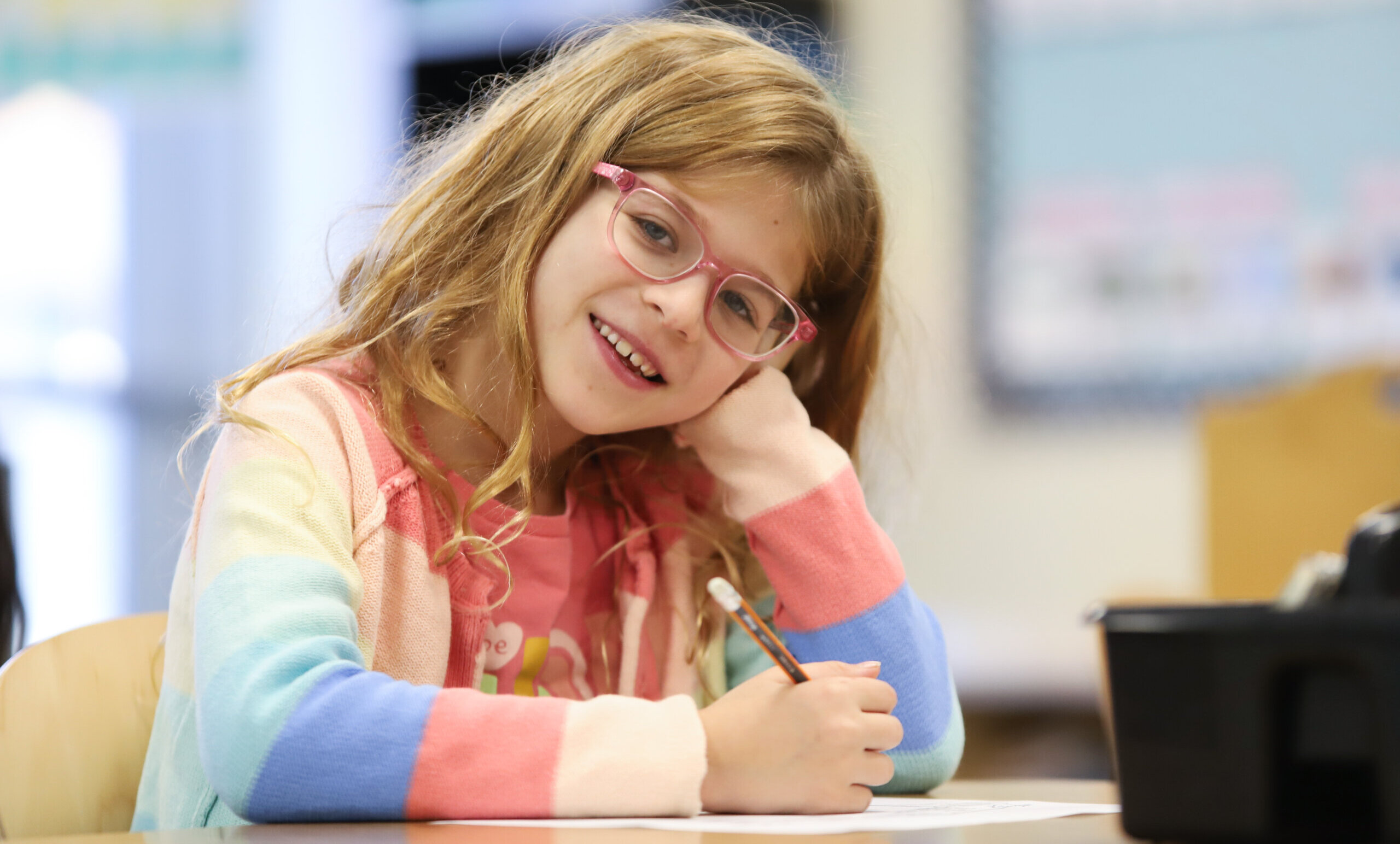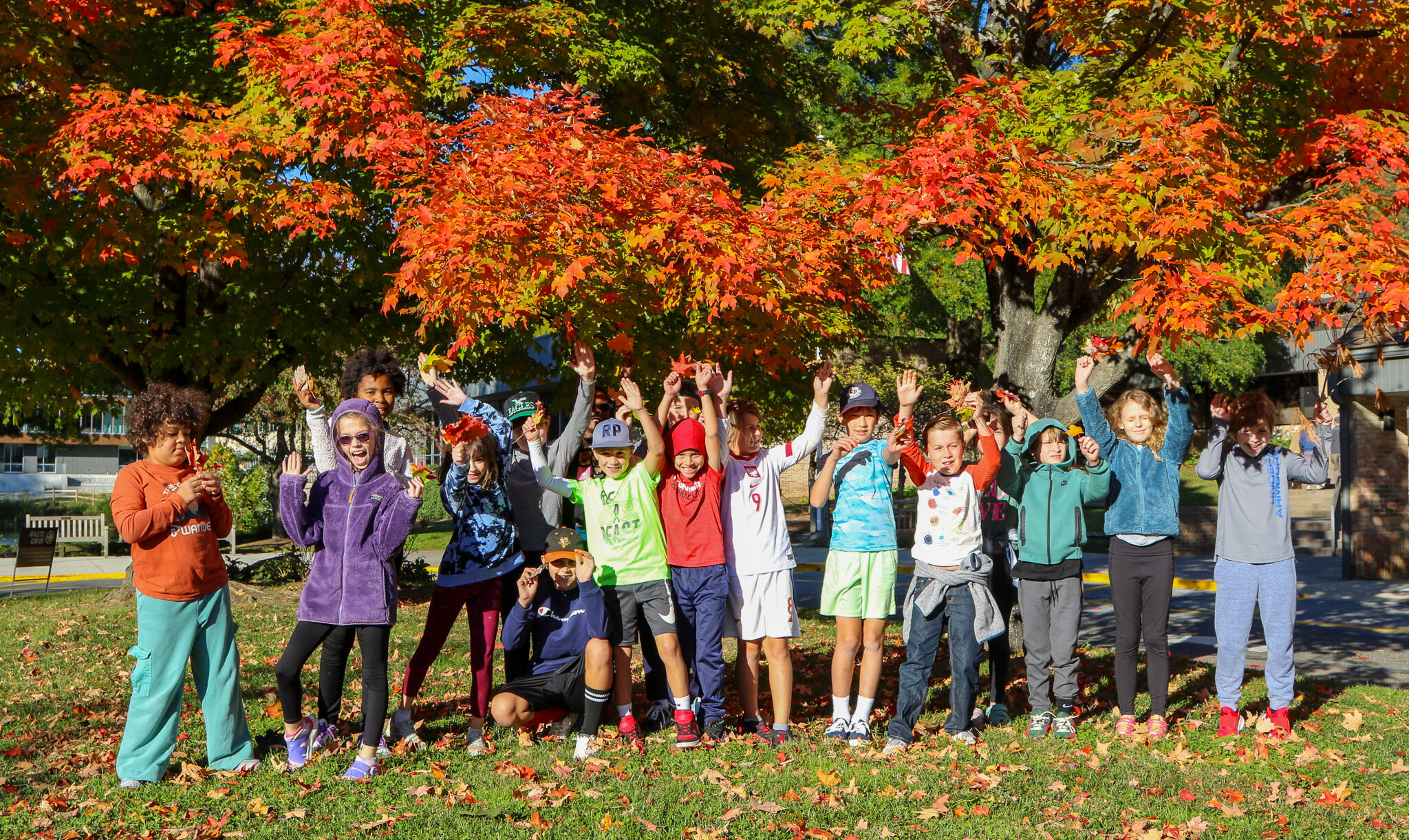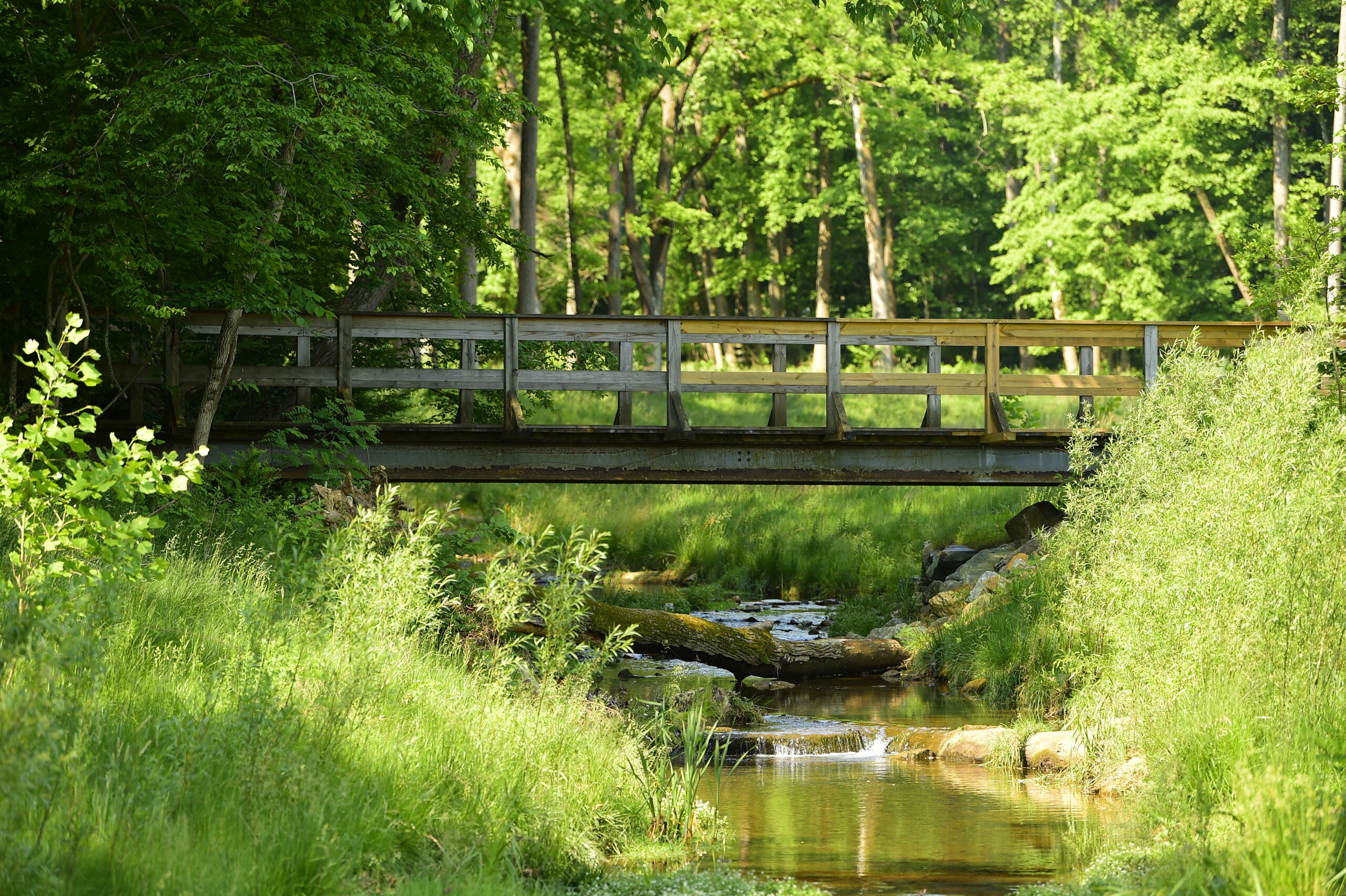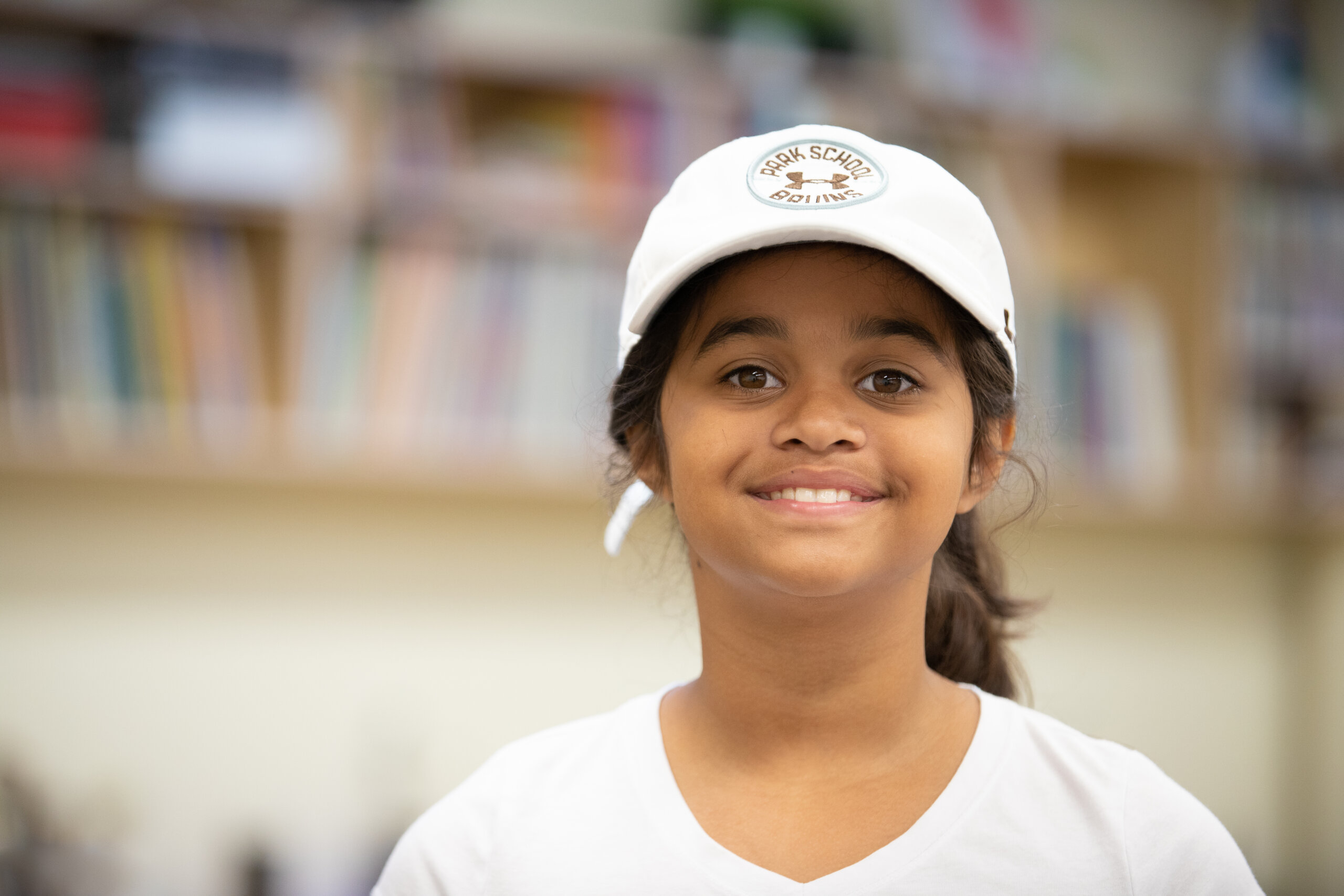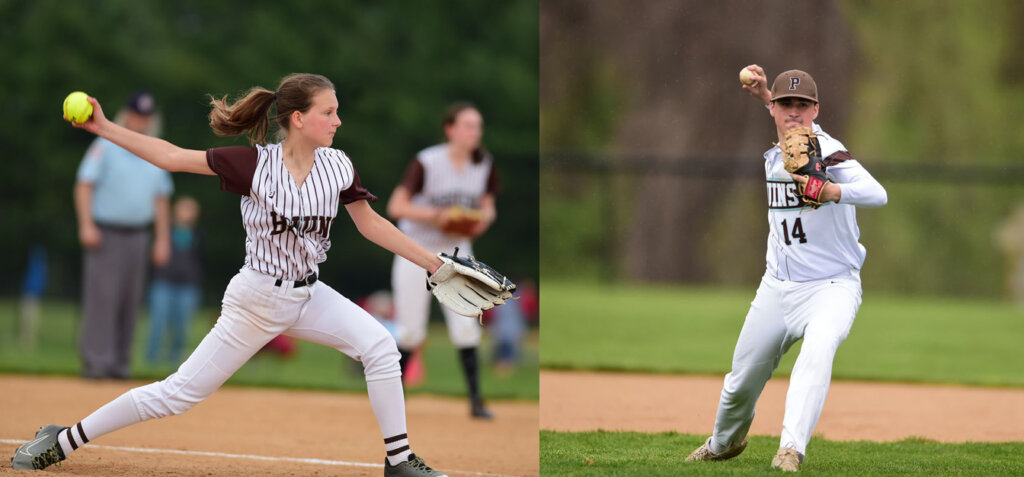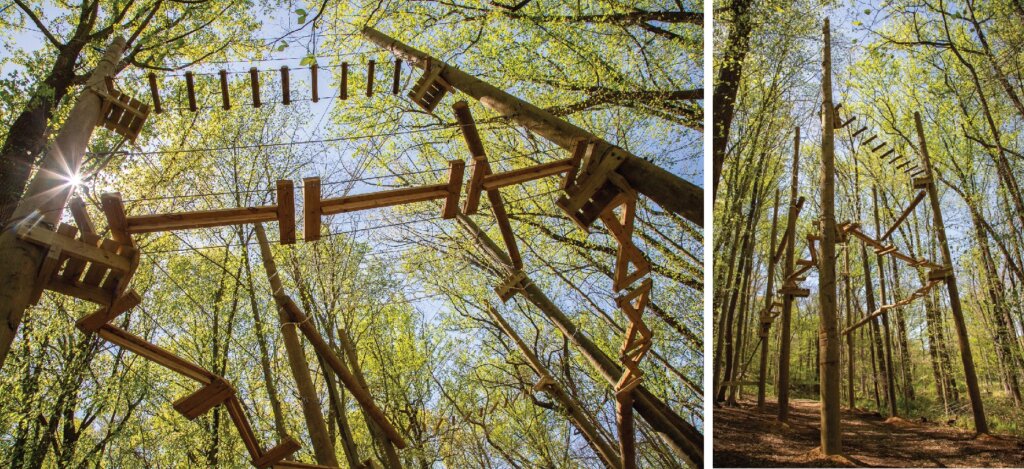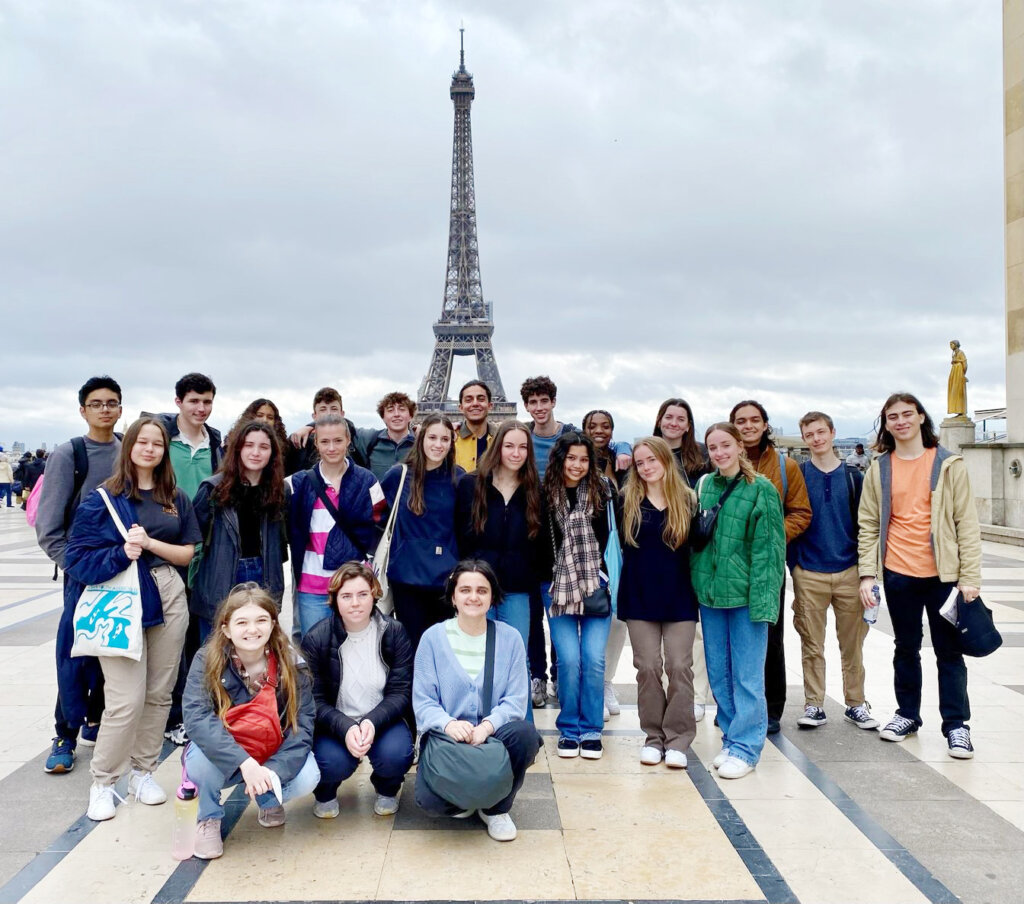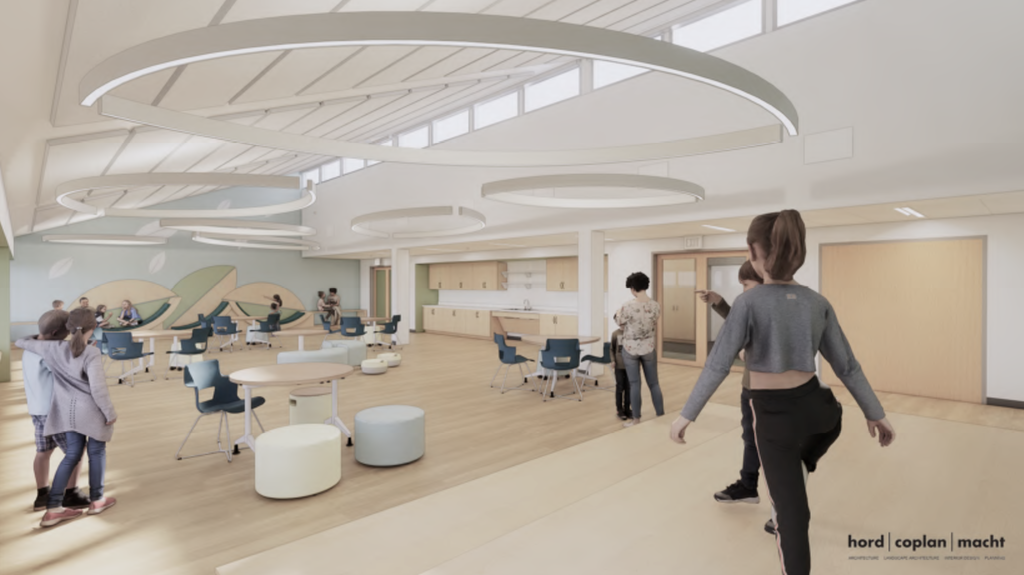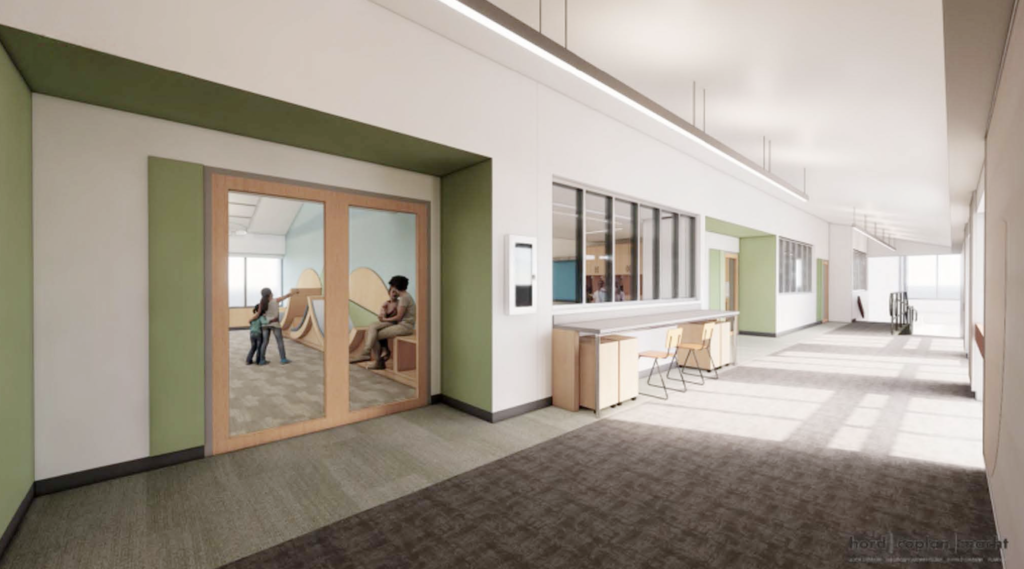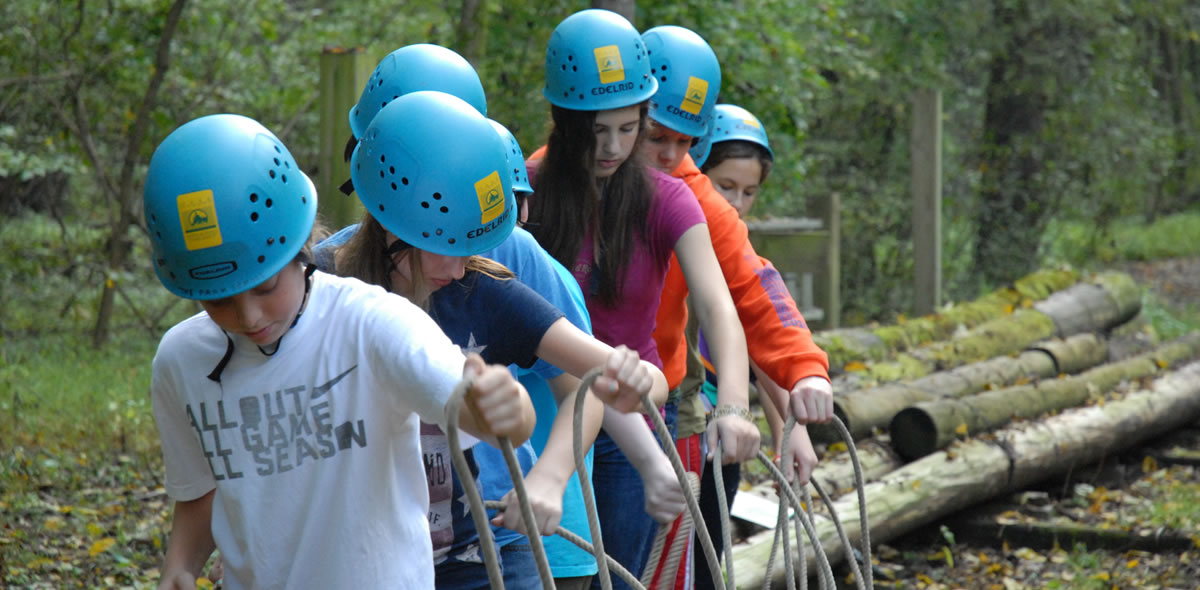A Day in The Life
The Lower School Experience: Grades 1-5
(Interested in what our Lower School’s Pre-K and Kindergarten day looks like? Click here.)
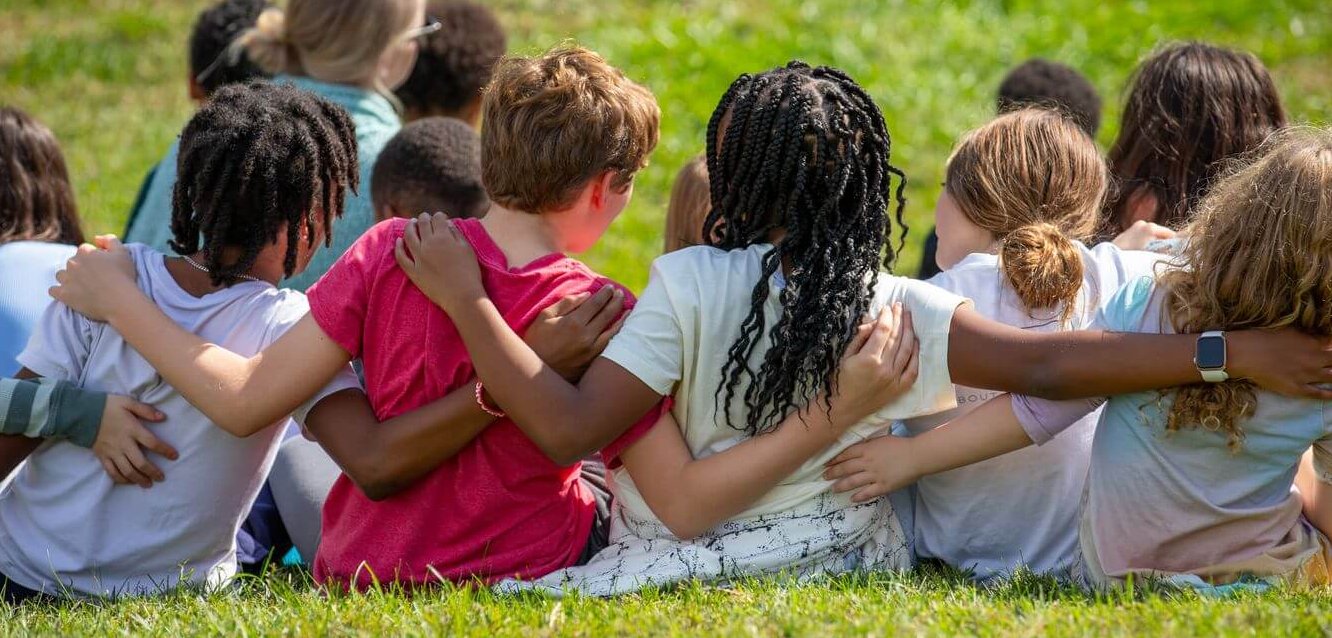
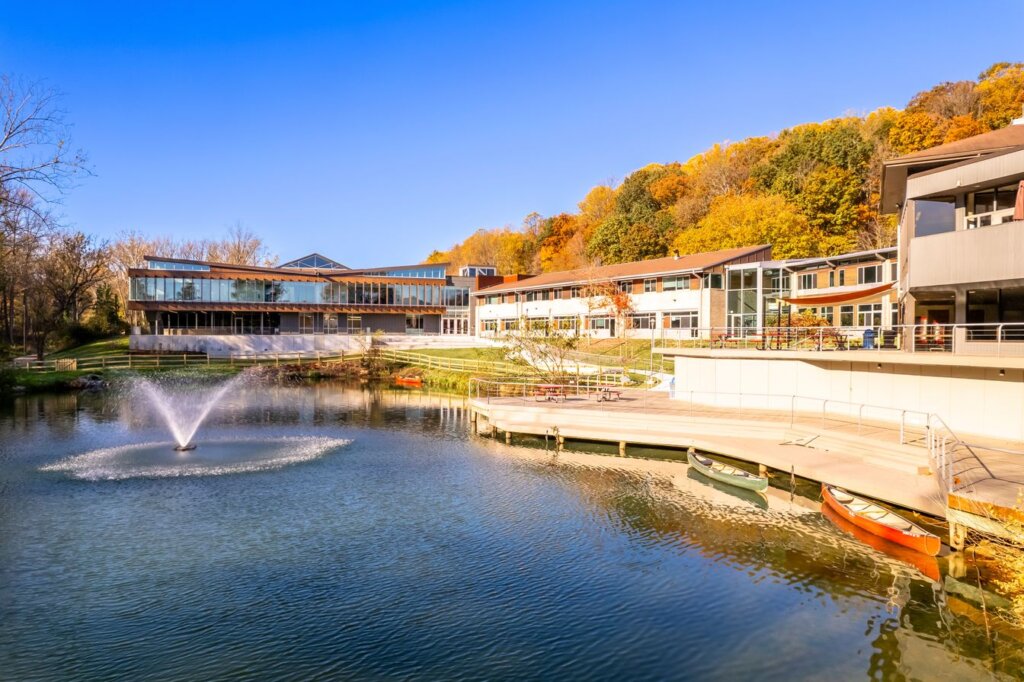
Our 100-Acre Campus
Our 100-acre campus is a thriving, learning laboratory that includes woodlands, stream, pond, trails, and gardens. Students in Grades 1-12 share the same building on campus, with separate spaces for each division. Lower School students spend most of their time on the eastern end of the building, and move westward to visit the library and the Athletic Center.
Before School
Classes start at 8:30 a.m.; Lower School students typically arrive between 8 and 8:20 a.m. For parents who have work or scheduling constraints, Lower Schoolers may arrive as early as 7:30 a.m. for supervised early care. At 8:10, everyone heads to their classrooms where their teachers greet them. Once belongings are stowed away in cubbies or lockers, students and teachers review the schedule for the day, and then engage in specific academic activities before gathering as a class for the start of a busy morning.
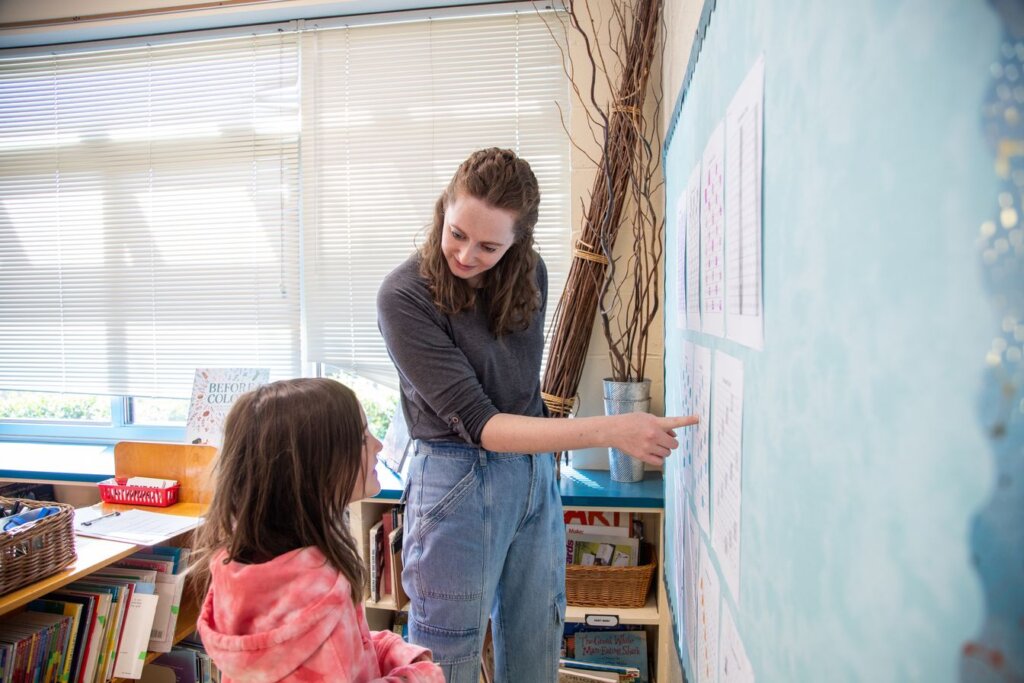
What is a Progressive Classroom?
When you enter the progressive classroom, you’ll find active engagement — lively, reflective discussion, small group work in the halls, all-class writing workshops, documenting of research, and one-on-one conversations with teachers.
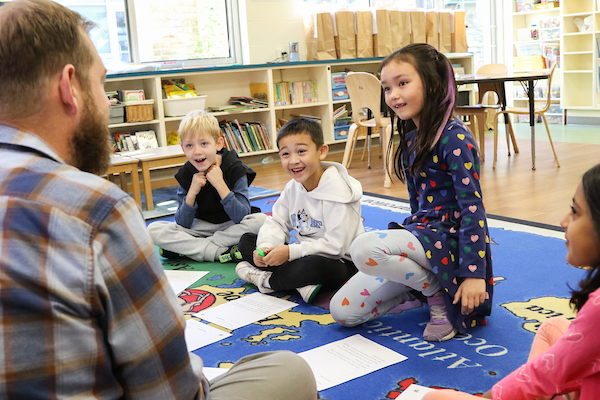
Across all disciplines and through every learning activity, students partner and collaborate with one another and with teachers, constructing knowledge about the world through inquiry and thoughtful analysis. In an environment of mutual respect, students contribute to the conversation; they challenge each other and their teachers, and all voices are valued and considered.
In a child-centered environment, where students are truly seen and heard, children feel empowered. Their confidence grows, they take risks, and they are ready and willing to tackle our challenging curriculum. From day one, teachers work to understand each student’s strengths and interests and identify areas for growth. By understanding the breadth and depth of what each individual learner brings to the classroom community, our experienced teachers are able to differentiate instruction to meet each student where they are, with plans to move forward, daily.
“To be creative… I think it means to have a lot of inspiration. At Park, creativity is everywhere.”
Science
For Park students, science is not just information gathering; it is an ongoing process of observing, investigating, questioning, reasoning, predicting, discovering, and problem-solving. We also know that children learn better when ideas are connected, so our Lower School science teachers work with children and homeroom teachers to integrate thematic, interdisciplinary topics into their study of science. In fifth grade, for example, science is directly related to the study of the Middle Ages, the curricular focus that year. A typical day might include budding scientists studying fire to understand the mysteries of combustion. Or they’ll work on constructing catapults and use them to execute experiments. They collect data, learning the relationships between measures of central tendency (mean, median, mode, etc.) in order to analyze their findings. In each unit of study, students are encouraged to formulate arguments supported by data, and to develop original questions that they pursue through independent experimentation.
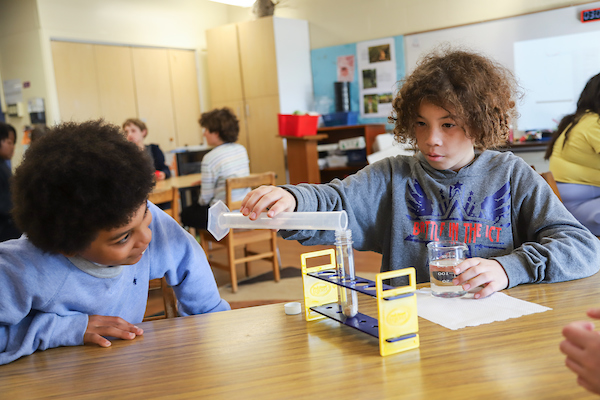

Literacy
Teachers from Pre-Kindergarten through the fifth grade expose children to a print-rich environment and build an understanding of text. They read to children regularly to develop the children’s listening and comprehension skills as well as their enjoyment of reading. They model reading behaviors, and confer with students about those behaviors and strategies. They provide guidance for choosing books of fiction, nonfiction, and poetry from different cultures and countries, and encourage students to explore a variety of texts for independent reading. There are opportunities for students to respond critically to what they have read and to share their reading with others, including across grade levels. Our fourth and fifth grade classes are partnered with our Pre-K and Kindergarten students for weekly reading sessions. Students keep the same pairing for the entire school year, creating bonds that can last throughout their time at Park, and beyond.
Recess
Recess is an invaluable part of the day for all Lower School students. On our expansive playground, Lower Schoolers move, play, learn, and work together. First and second graders have two recess breaks a day, and third, fourth, and fifth graders have one recess in the afternoon. We have three dedicated recess supervisors who not only know and work with every student in the Lower School, but also have weekly meetings with the school counselor, faculty, and members of our administration to ensure that the learning on the playground is highlighted as an important part of each child’s development.
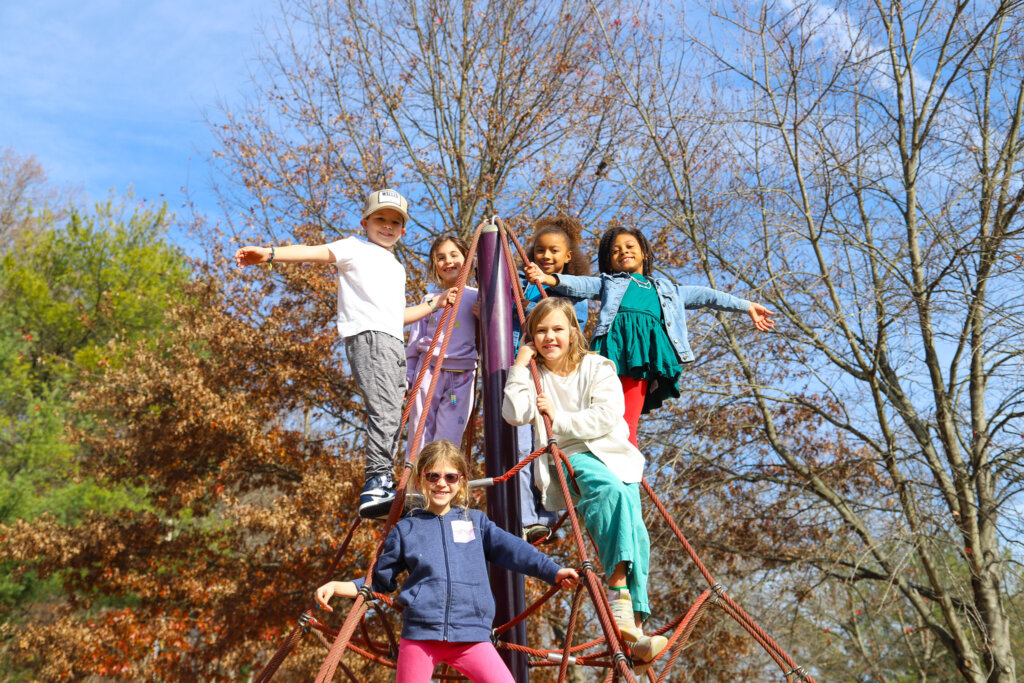
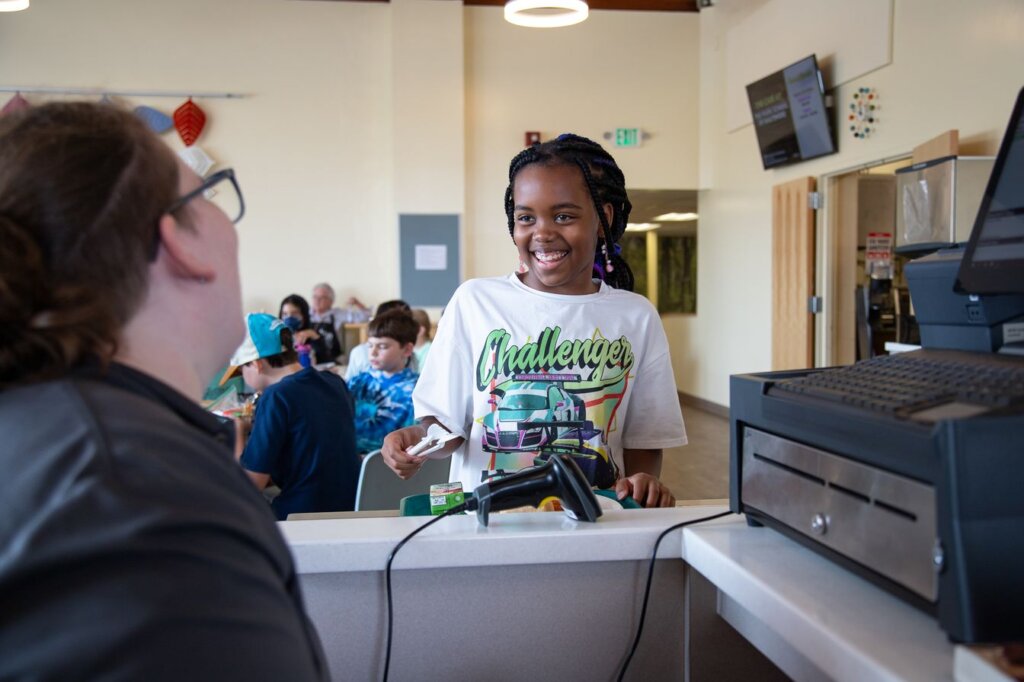
Lunch
Lunchtime is also a restorative and social time for our young learners. First and second graders eat in their classrooms, with the option to purchase lunch from our dining services, while third, fourth, and fifth graders eat in the cafeteria. Students either bring lunch from home, or purchase foods that are prepared using fresh ingredients. Vegan, vegetarian, and gluten-free offerings are always available.
Math
In our constructivist program, children explore mathematical ideas, practice reasoning, and apply problem-solving skills. From early exploration of the properties of numbers and shapes through complex problems of fractions and decimals, the objective is to build and secure basic computational skills through the development of deep conceptual understanding of mathematics. Children work with an array of hands-on materials as they explore and build upon their understanding of numerical and spatial relationships. These concrete exposures are used to anchor abstract concepts, giving children many opportunities to experiment in solving open-ended problems and to apply mathematical skills for real-life, practical purposes. Through these experiences, children come to recognize that math is a language that can be used to understand, interpret, and solve a wide variety of problems.
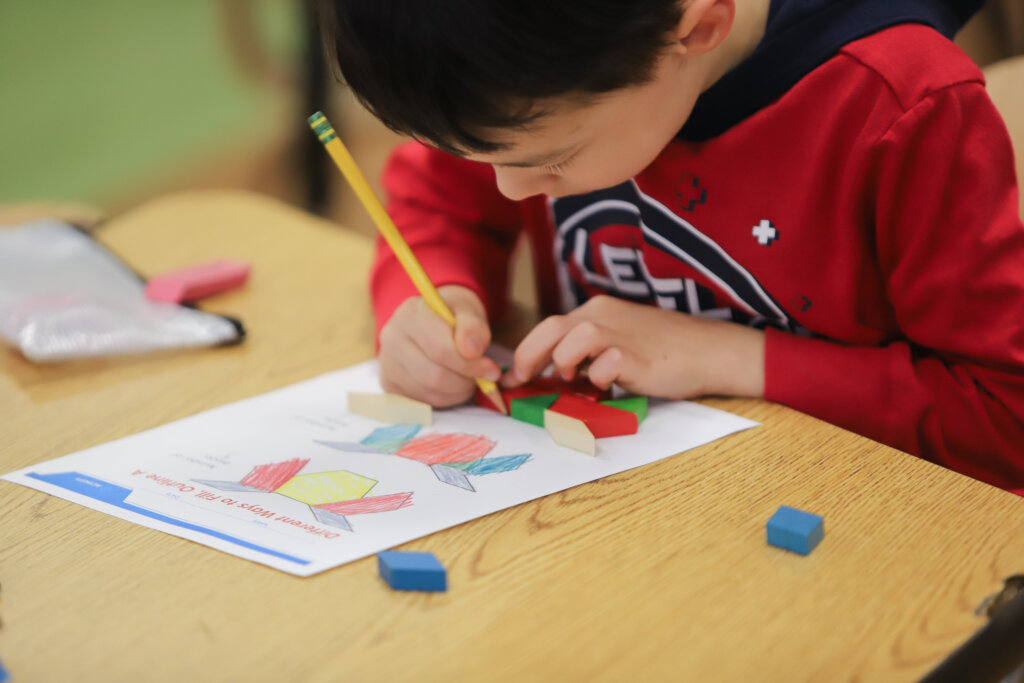
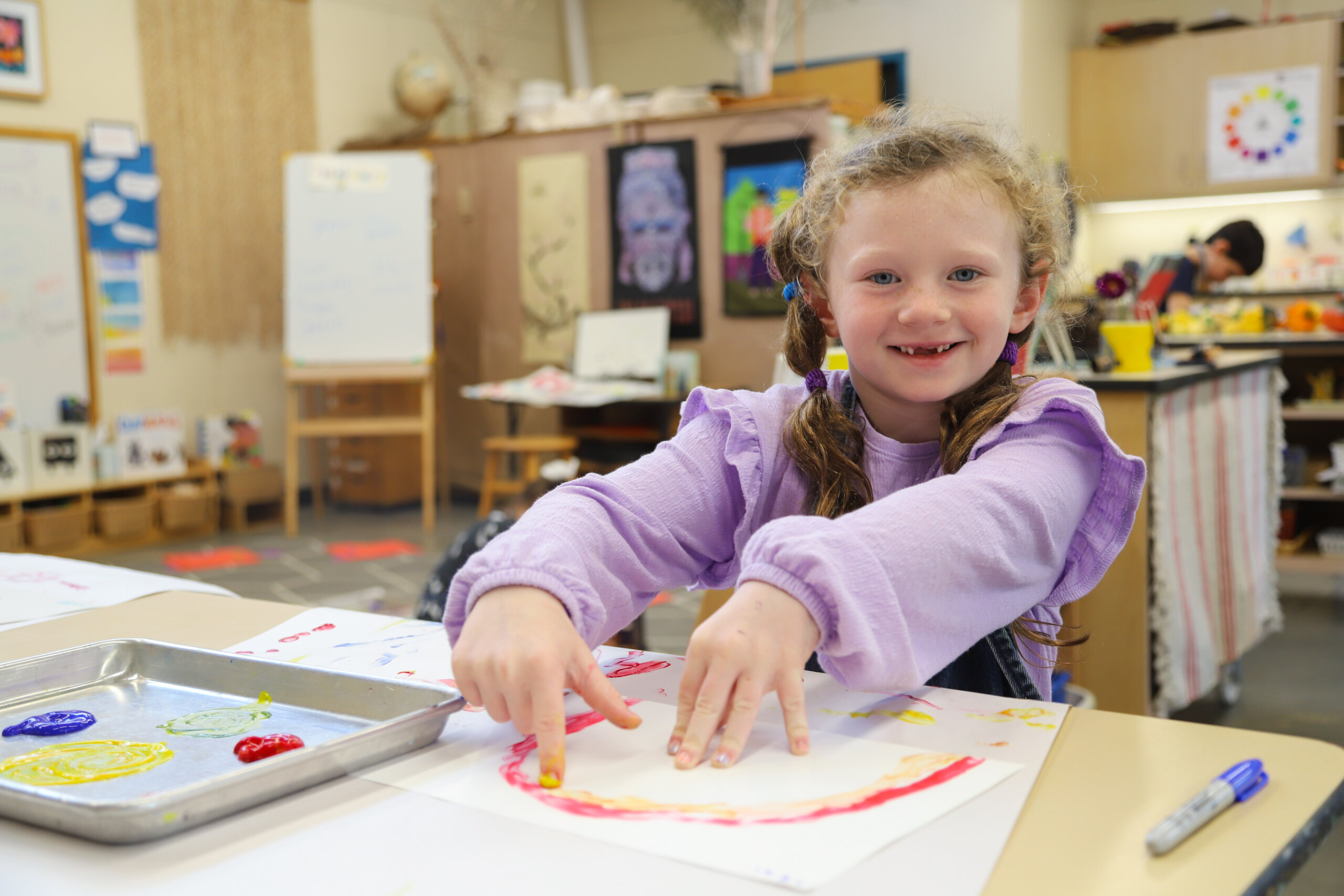
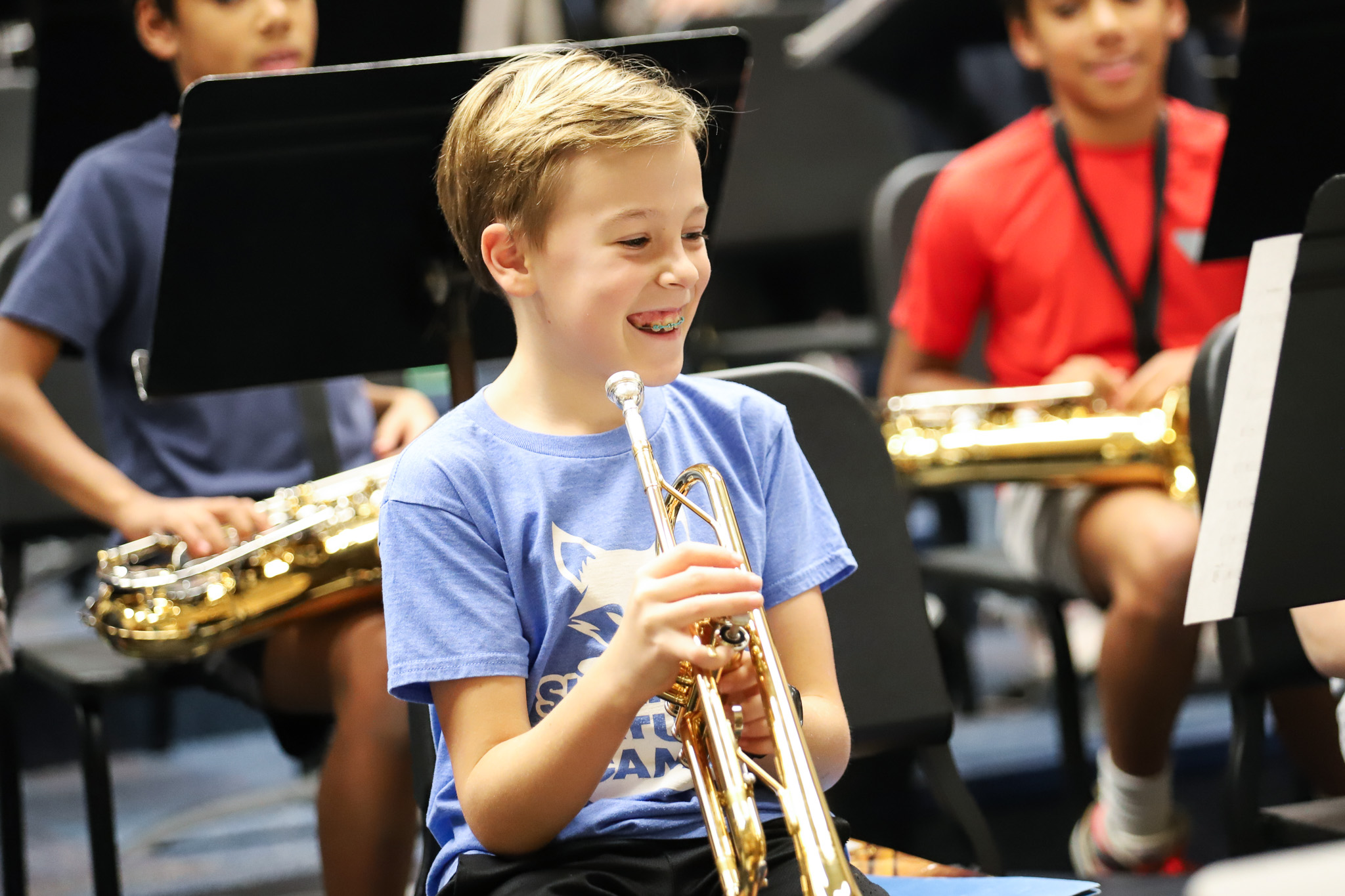
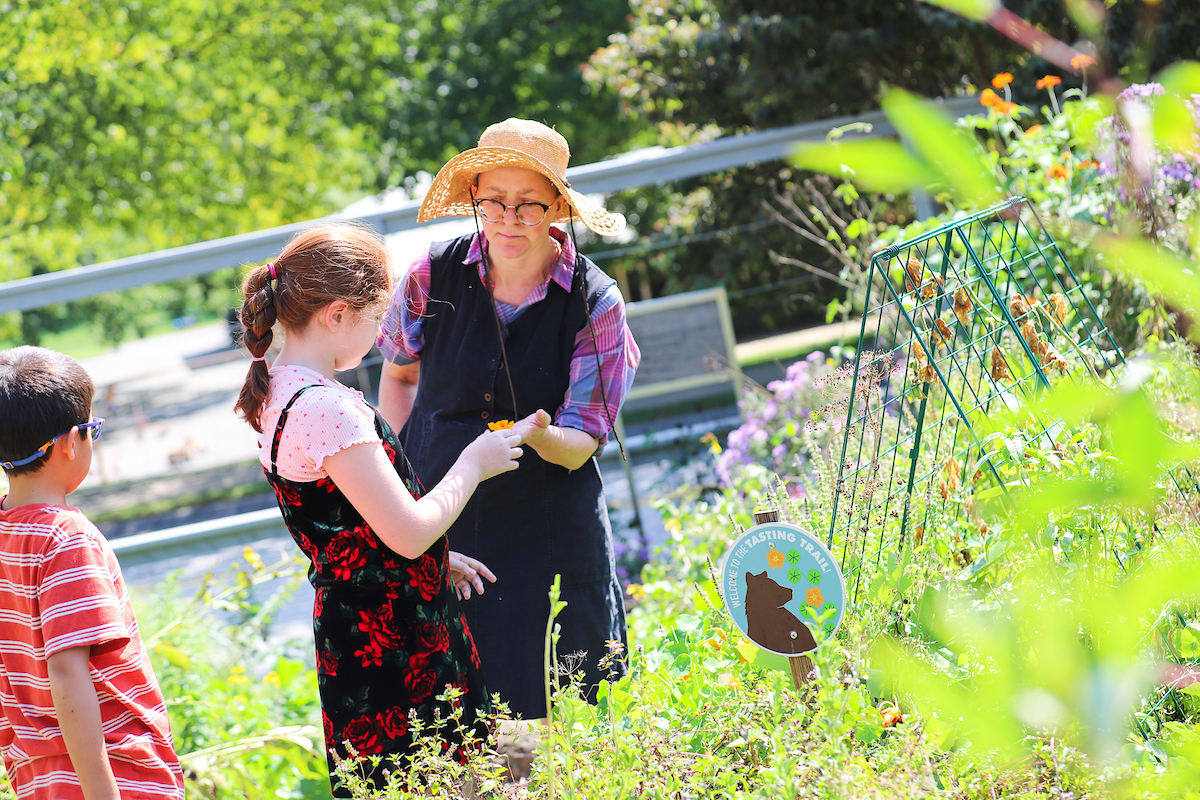
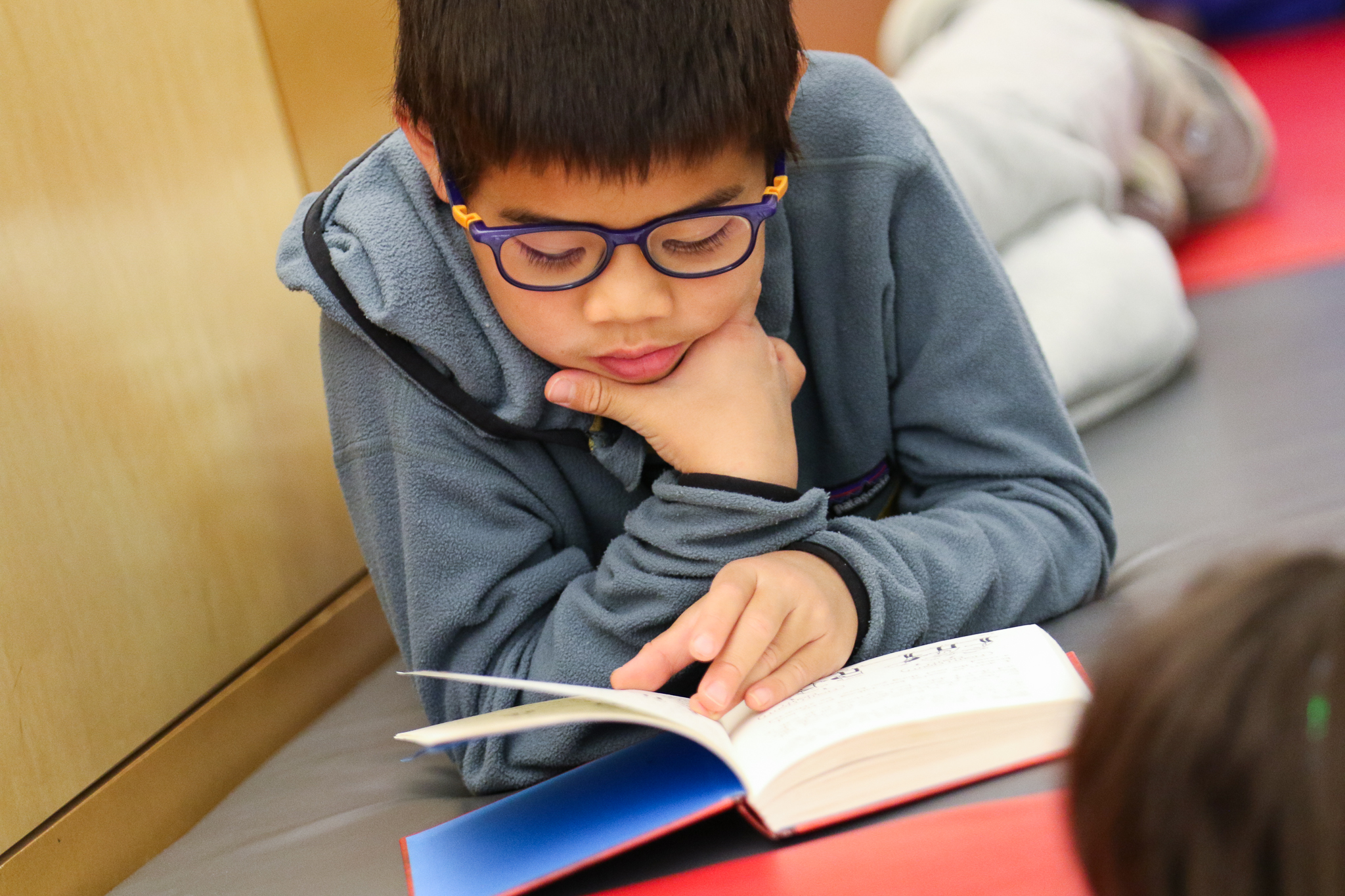
Time for Specials!
Throughout the day, all homeroom classes participate in special area subjects, including art, library, music, physical education, Spanish, and technology. Our special area teachers are experts in their content areas, and often focus their classes on ways to integrate curriculum. One of our librarians, as a professional storyteller, draws on her extensive collection of stories and tales to enrich curricular content and research, including focuses on Civil Rights, Indigenous Peoples, and the Middle Ages. During the pandemic, one of our visual art teachers created a project on masks to increase comfort, reduce stigma, and demonstrate that masks have deep roots throughout history across the globe. While learning to write programs and practice coding in technology class, fifth grade students are required to share and respond to feedback on message boards. In follow-up conversations, teachers guide conversations among students as they consider the implications of comments online and representing oneself on social media.
Community
At Park, we teach the whole child and acknowledge the importance for all students to feel a deep sense of belonging. Park is not only a school, but also an extension of home for all community members — students, faculty, staff, and parents. Within our structured curriculum, we are not afraid to let the children lead. Their questions, interests, and ideas matter.
Social-emotional learning is a cornerstone and foundation of our program at Park, and much of that development happens during structured and purposefully unstructured time together. We believe that finding one’s authentic self is only possible in an environment where children feel safe, trusted, respected, and encouraged to be and share their authentic selves with one another. This is ongoing, intentional work around identity, guided conversations about our similarities and differences, and teaching methods for conflict resolution that begins at the start of their journey at Park.
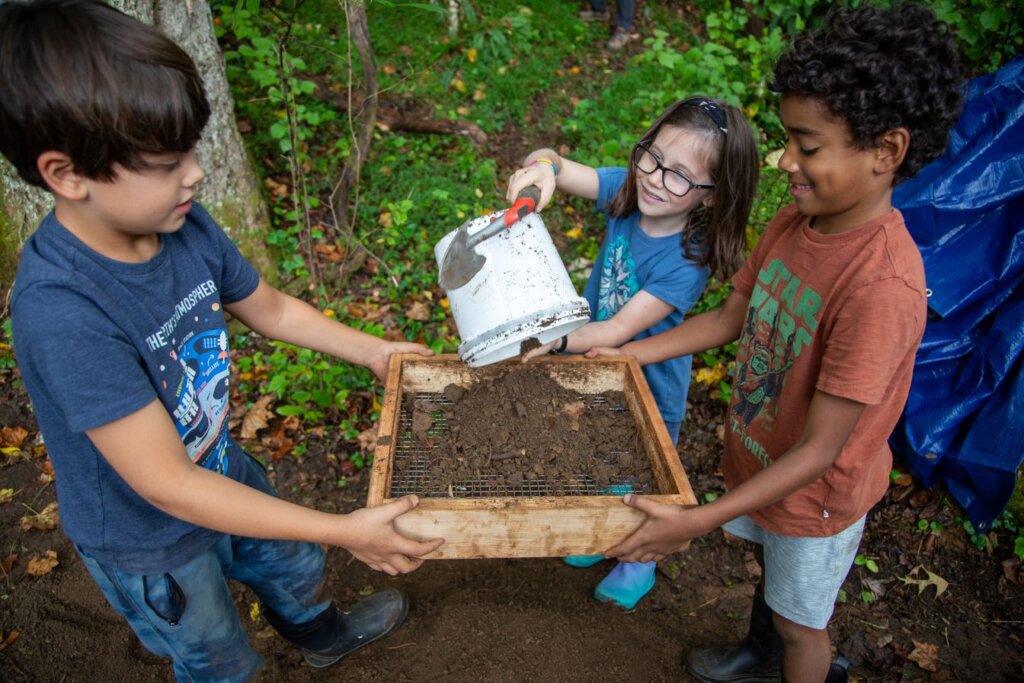
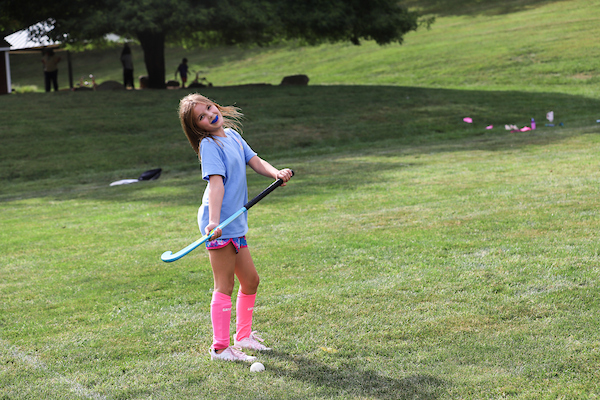
Activities, Athletics, Music, and More
When the school day ends at 3:15 p.m., bus riders move to the bus circle and those getting picked up proceed to the carpool area. Students staying at school may elect to take advantage of a variety of enrichment activities (for an additional fee) created by Park faculty members and guest teachers. Private music lessons are also offered for an additional fee. No-cost co-curricular activities for fourth and fifth graders include jazz band and chorus. Additional no-cost options include fall and spring team sports for fourth and fifth grade students. Park is one of the very few schools who offer team sports at this level.
Our Extended Day program offers care for children beyond the end of the school day. Our staff organizes a Our Extended Day program offers care for children beyond the end of the school day. Our staff organizes a wide array of activities both indoors and out, as well as quiet space to tackle homework for those in upper grades. A daily snack is included in the fee. Families may choose between coverage until 4:30 or 6 p.m., and from one to five days per week.
Are you looking to apply to Park’s Lower School?
